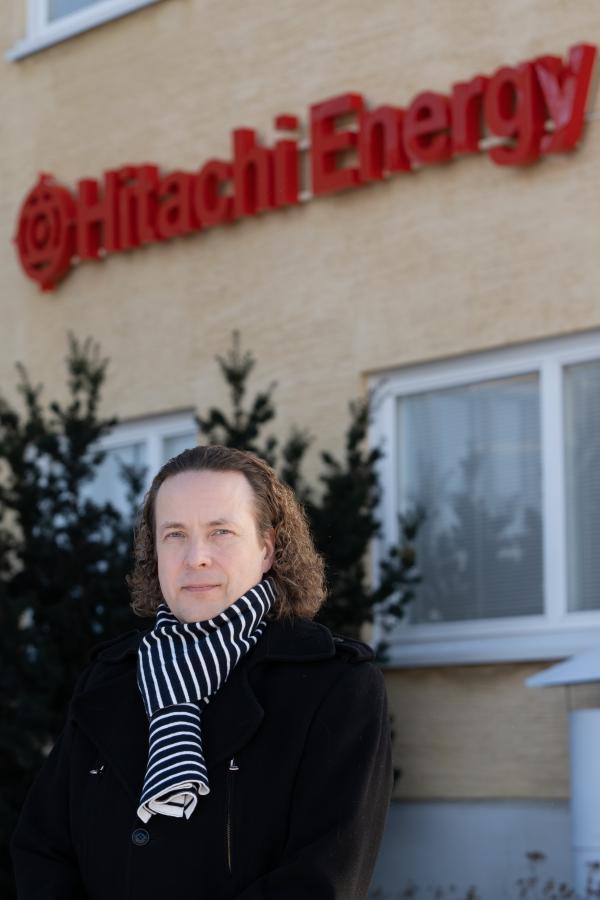Doctoral studies add a bird's-eye view to professional life – enriched thinking and analytical skills help to innovate

Kärki has found significant support for his work tasks from his doctoral studies and research. His mindset has expanded, and his studies have strengthened his analytical skills. While working on his dissertation, he ventured outside his comfort zone into statistics, which proved to be rewarding.
– I learned to analyse the impacts of decisions and understand how various factors correlate with each other. A deeper insight into long-term goals has been vital in my career. Even though not all the things learned directly apply in practice, they can still influence our mindset and problem-solving skills.
Kärki believes that continuous learning, challenging yourself, and putting your skills to use are crucial in finding innovative solutions and business opportunities.
– Companies need educated people. Doctorates are especially useful when seeking innovative solutions and developing new ideas. A research background helps address challenges systematically and persistently. Doctoral studies have already proven the value of systematic and persistent effort.
Collaboration between companies and universities holds huge potential
Throughout his career, Kärki has collaborated with universities. Previously, he worked with researchers to develop product, system, and office processes. At the University of Vaasa, Kärki has several contacts with whom he can discuss challenges in his work. These discussions benefit both parties. In addition to collaboration meetings, Kärki even participated in university strategy days, where the idea of a mentoring programme originated. The discussion there revolved around how a new graduate assumes that they will join a company and become a CEO in five years or a leader of a large team within two years, which may not necessarily be realistic. They get disappointed and may leave to seek employment elsewhere.
– I received a lot of mentoring myself and suggested to the university to extend mentoring beyond its boundaries. We could provide future talents the opportunity to network in our company, see our work and career paths in practice, work with us during summers, and complete their theses with us. This would help integrate them into Vaasa and our companies here.
The programme began with two piloting students. Today, numerous students participate in the mentoring programme, which is part of the Energy Academy.
– I am particularly proud of developing this concept, as it bridges the gap between the academic world and the industry.
Master’s theses and final projects offer added value to companies. Kärki also sees potential in doctoral theses.
– It is important that we maintain a continuous dialogue with universities and educational institutions. We both need each other. Our experts have lectured at the university. I believe we should walk hand in hand to better understand how doctors can best serve our company's needs. This requires strong commitment from both parties, but together we can accomplish a lot.
Kärki himself worked in the company throughout his doctoral studies, which was the right decision for him at the time.
– If I were pursuing a doctoral degree now, I would definitely want to combine it with practical work in the company. I could spend six months or a year in the company doing the work my dissertation addresses. I could fully focus on the company's work and then bring these insights back to my research. This way, I would surely contribute more to my work academically.
- A smile comes to my face every morning when I go to work - this is a great industry and the place to be right now.
A diverse career path in a global company
Kärki has had a long career in a large global company, almost always studying alongside work. First, he worked in protection relay assembly and final testing, then moved to sales support and was involved in building the company's first website and trading pages.
During the dissertation process, Kärki worked at the Corporate Research Center, where he was involved in solving various factory problems and improvement processes. After completing his doctorate, Kärki moved into sales, first leading sales account processes in Finland, then the European sales team, and then the global sales team.
He has served as a factory manager, i.e. CEO, and been responsible for sales in Northern Europe. Four months ago, he started in his current position.
– My career has taken many positive turns. As a researcher, I got involved in developing corporate-level strategies. I collaborated with the university and simulated supply chain models, among other things. It was great to implement these projects on a global scale. Of course, it was also great to meet many great leaders. This has been very educational and inspiring. Along the way, I have learned that things, processes, and many other things cannot be divided into positive and negative but into those that work well and those that need improvement.
Kärki's best leadership tip is simple but important: always be yourself.
– As a leader, you cannot lead from behind the scenes or be something other than what you are. Transparency, openness, and listening to people are crucial. Tough situations always occur, and as a leader, you have to make difficult decisions. Treat everyone the same – the same rules apply to everyone. If you do not follow the rules, it will only cause trouble and grey hair, he says with a laugh.
